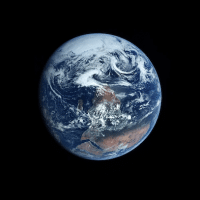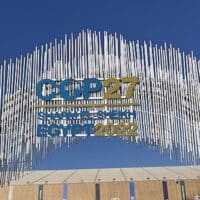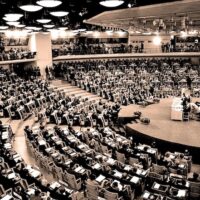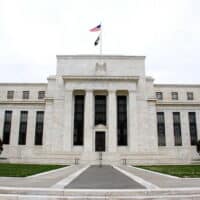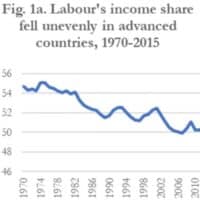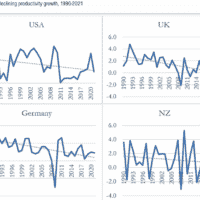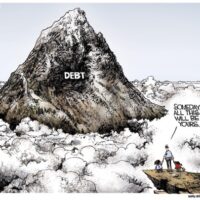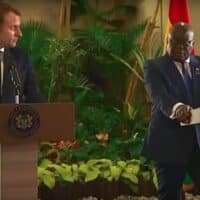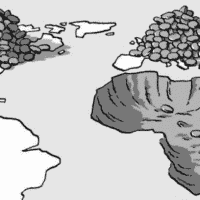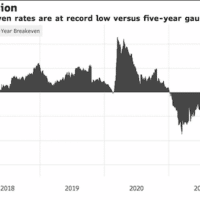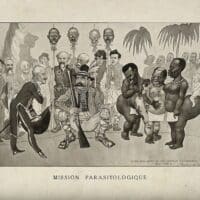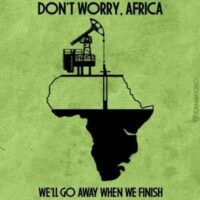-
Rich nations doubly responsible for greenhouse gas emissions
Natural flows do not respect national boundaries. The atmosphere and oceans cross international borders with little difficulty, as greenhouse gases (GHGs) and other fluids, including pollutants, easily traverse frontiers.
-
Open veins of Africa bleeding heavily
The ongoing plunder of Africa’s natural resources drained by capital flight is holding it back yet again. More African nations face protracted recessions amid mounting debt distress, rubbing salt into deep wounds from the past.
-
COP27 fiddling as world warms
The latest annual climate conference has begun in the face of a worsening climate crisis and further retreats by rich nations following the energy crisis induced by NATO sanctions after the Russian invasion of Ukraine.
-
Limits to growth: Inconvenient truth of our times
Ahead of the first United Nations environmental summit in Stockholm in 1972, a group of scientists prepared The Limits to Growth report for the Club of Rome. It showed planet Earth’s finite natural resources cannot support ever-growing human consumption.
-
Developing countries need monetary financing
Developing countries have long been told to avoid borrowing from central banks (CBs) to finance government spending. Many have even legislated against CB financing of fiscal expenditure.
-
Stop worshiping central banks
Preoccupied with enhancing their own ‘credibility’ and reputations, central banks (CBs) are again driving the world economy into recession, financial turmoil and debt crises.
-
Central bank myths drag down world economy
The dogmatic obsession with and focus on fighting inflation in rich countries are pushing the world economy into recession, with many dire consequences, especially for poorer countries. This phobia is due to myths shared by most central bankers.
-
Ideology and dogma ensure policy disaster
Central banks (CBs) around the world–led by the U.S. Fed, European Central Bank and Bank of England–are raising interest rates, ostensibly to check inflation. The ensuing race to the bottom is hastening world economic recession.
-
Inflation targeting farce: High costs, moot benefits
Sep 20, 2022 (IPS). Policymakers have become obsessed with achieving low inflation. Many central banks adopt inflation targeting (IT) monetary policy (MP) frameworks in various ways. Some have mandates to keep inflation at 2% over the medium term. Many believe this ensures sustained long-term prosperity.
-
Africa struggles with neo-colonialism
After a quarter century of economic stagnation, African economic recovery early in the 21st century was under great pressure even before the pandemic, due to new trade arrangements, falling commodity prices and severe environmental stress.
-
1980s’ redux? New context, old threats
As rich countries raise interest rates in double-edged efforts to address inflation, developing countries are struggling to cope with slowdowns, inflation, higher interest rates and other costs, plus growing debt distress.
-
How France underdevelops Africa
SYDNEY and KUALA LUMPUR, Aug 30 2022 (IPS) – Most sub-Saharan African French colonies got formal independence in the 1960s. But their economies have progressed little, leaving most people in poverty, and generally worse off than in other post-colonial African economies.
-
How NOT to win friends and influence people
After four years of Trump’s ‘America first’ isolationism, U.S. President Joe Biden announced “America is back”. His White House has since tried to find allies against China and Russia.
-
Stagflation: From tragedy to farce
SYDNEY and KUALA LUMPUR. Half a century after the 1970s’ stagflation, economies are slowing, even contracting, as prices rise again. Thus, the World Bank warns, “Surging energy and food prices heighten the risk of a prolonged period of global stagflation reminiscent of the 1970s.”
-
Neo-colonial currency enables French exploitation
SYDNEY and KUALA LUMPUR. Colonial-style currency board arrangements have enabled continuing imperialist exploitation decades after the end of formal colonial rule. Such neo-colonial monetary systems persist despite modest reforms.
-
Africa taken for ‘neo-colonial’ ride
SYDNEY and KUALA LUMPUR. Like so many others, Africans have long been misled. Alleged progress under imperialism has long been used to legitimize exploitation. Meanwhile, Western colonial powers have been replaced by neo-colonial governments and international institutions serving their interests.
-
Weaponizing Free Trade Agreements
Long seen as means to seek advantage on the pretext of providing mutual benefit, free trade agreements may increasingly become economic weapons in the new Cold War, disrupting earlier globalization.
-
SWIFT dollar decline
SYDNEY and KUALA LUMPUR: U.S.-led sanctions are inadvertently undermining the dollar’s post-Second World War dominance. The growing number of countries threatened by U.S. and allied actions is forcing victims and potential targets to respond pro-actively.
-
Fighting inflation excuse for class warfare
SYDNEY and KUALA LUMPUR. A class war is being waged in the name of fighting inflation. All too many central bankers are raising interest rates at the expense of working people’s families, supposedly to check price increases.
-
When saviours are the problem
SYDNEY and KUALA LUMPUR: Central bank policies have often worsened economic crises instead of resolving them. By raising interest rates in response to inflation, they often exacerbate, rather than mitigate business cycles and inflation.

